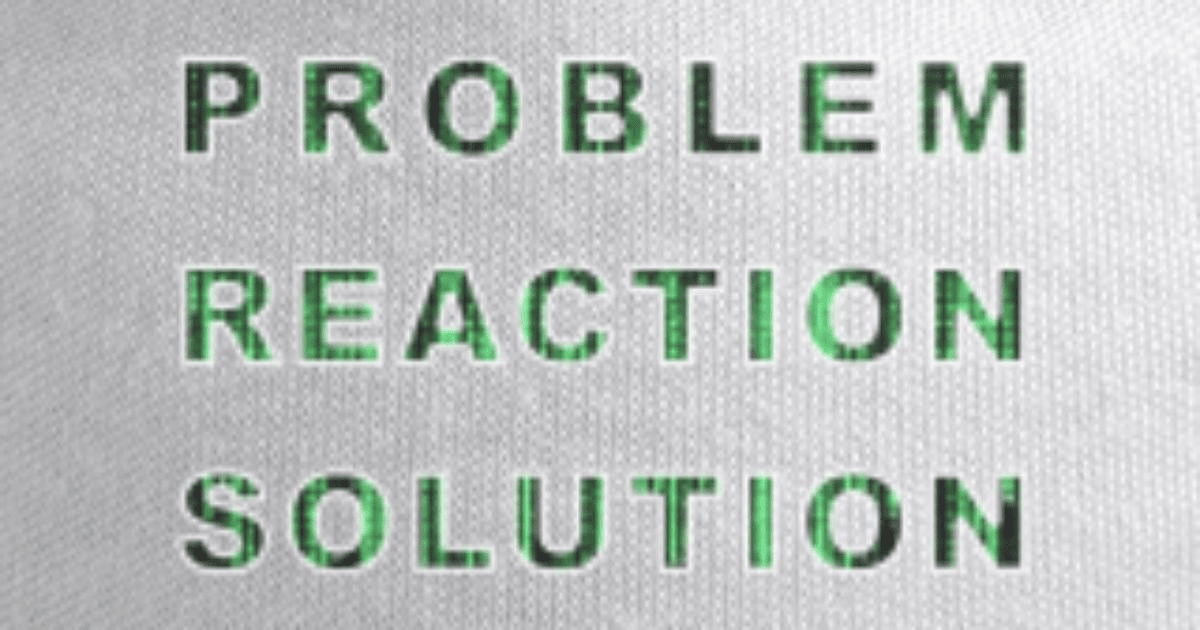Physical Address
304 North Cardinal St.
Dorchester Center, MA 02124
Physical Address
304 North Cardinal St.
Dorchester Center, MA 02124


This is the playbook of “order out of chaos”—a tactic used time and time again, from ancient Rome to the present day. The question is, how does this method work, and what can we do to break free from the cycle?
The phrase “Ordo Ab Chao” (Latin for “Order out of Chaos”) is deeply tied to secret societies and global power structures. The idea is simple: when people are comfortable, they rarely demand radical change. However, in times of fear and uncertainty, they will accept almost anything if it promises safety.
Governments and elites have long understood this principle. A well-timed crisis—whether real, exaggerated, or engineered—allows those in power to rewrite the rules, expand surveillance, strip freedoms, and silence dissent. Once the dust settles, those emergency powers rarely disappear. Instead, they become the new normal.
Rome was once a republic with elected officials and public representation. But as the empire expanded, so did its problems—economic struggles, wars, and internal conflicts. Enter Julius Caesar. He positioned himself as the answer to Rome’s chaos, declaring himself dictator. By the time the dust settled, Rome had transformed into an empire with absolute rule. What started as a temporary solution to instability became the end of Roman democracy.
One of the most infamous examples of order out of chaos is the burning of the Reichstag in 1933. When the German parliament building went up in flames, Hitler and the Nazi party blamed communists and immediately declared a state of emergency. The Reichstag Fire Decree followed, suspending freedoms and allowing mass arrests of political opponents.
Not long after, the Enabling Act was passed, giving Hitler full dictatorial powers. What began as a reaction to a single event led to one of history’s most brutal tyrannies.

After the 9/11 attacks, the U.S. government rushed to introduce sweeping anti-terrorism measures. The Patriot Act, signed in 2001, expanded mass surveillance, allowed warrantless wiretapping, and stripped away privacy protections.
Over 20 years later, those emergency measures have only expanded, leading to a near-total surveillance state in the West. Governments now have unprecedented access to private data, and the justification is always the same: “security.”
While history provides obvious examples, the same playbook is still in use today. Consider recent events:
Every crisis follows the same pattern: problem, reaction, solution. But the “solution” always involves giving up more freedom in exchange for less security than promised.
The first step is awareness. Once you see the pattern, you can no longer be manipulated as easily. Here’s how to fight back:
The media thrives on panic. Every headline is designed to keep you anxious and dependent on government intervention. Turn off the fear propaganda and research independently.
Whenever governments ask for temporary powers, history shows they almost never give them back. Challenge these moves, whether it’s expanded police authority, surveillance, or censorship laws.
Tyranny thrives when people are dependent. Grow your own food, find alternative income streams, invest in real assets, and reduce reliance on government-controlled systems. The less control they have over your life, the freer you are.
Refusing to engage with politics doesn’t make you immune to tyranny—it makes you a target. Vote against authoritarian measures, hold leaders accountable, and support decentralized movements.
Tyranny doesn’t always arrive with jackboots and tanks. More often than not, it sneaks in under the cover of protection, crisis, and public safety. Understanding how the game is played is the first step to opting out of it.
We’ve covered the historical and modern playbook of how crises are weaponized to increase control. But what other examples have you noticed? Drop a comment below and share your thoughts!
[Insert Comment Section Here]
For more on how distractions keep us trapped in this cycle, check out Bread and Circus: How Distractions Enable Tyranny in Modern Society.